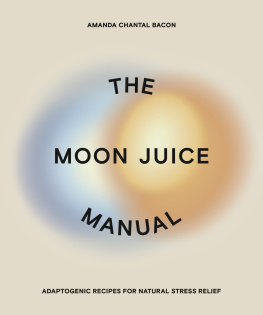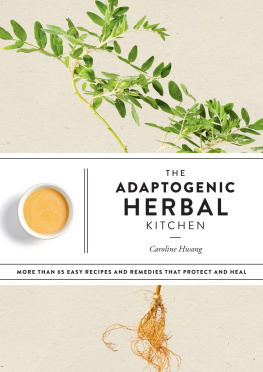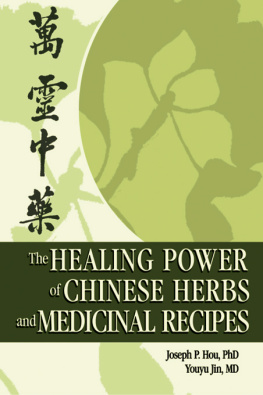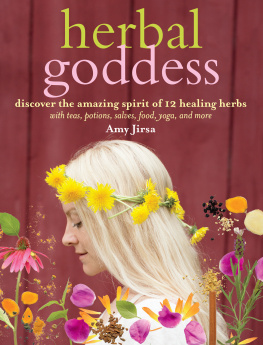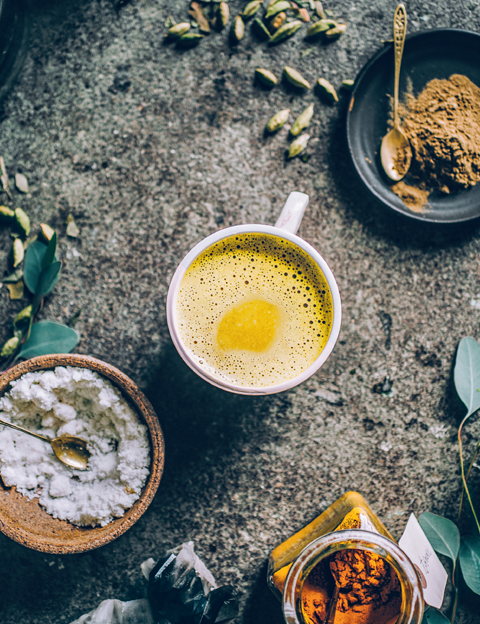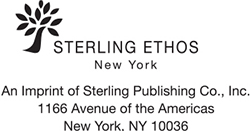STERLING ETHOS and the distinctive Sterling Ethos logo are registered trademarks of Sterling Publishing Co., Inc.
Text 2019 Adriana Ayales
Cover 2019 Sterling Publishing Co., Inc.
All rights reserved. No part of this publication may be reproduced, stored in a retrieval system, or transmitted in any form or by any means (including electronic, mechanical, photocopying, recording, or otherwise) without prior written permission from the publisher.
This publication includes alternative therapies that have not been scientifically tested, is intended for informational purposes only, and is not intended to provide or replace conventional medical advice, treatment or diagnosis or be a substitute to consulting with licensed medical or health-care providers. The publisher does not claim or guarantee any benefits, healing, cure or any results in any respect and shall not be liable or responsible for any use or application of any content in this publication in any respect including without limitation any adverse effects, consequence, loss or damage of any type resulting or arising from, directly or indirectly, any use or application of any content herein. Any trademarks are the property of their respective owners, are used for editorial purposes only, and the publisher makes no claim of ownership and shall acquire no right, title or interest in such trademarks by virtue of this publication.
ISBN 978-1-4549-3460-8
For information about custom editions, special sales, and premium and corporate purchases, please contact Sterling Special Sales at 800-805-5489 or .
sterlingpublishing.com
Cover design by David Ter-Avanesyan
Interior design by Ashley Prine, Tandem Books
Photography Renee Byrd
For all other picture credits, see
I dedicate this book to my beloved husband and children who have shown me the path of unconditional love, and to the spirit of nature to whom I bow with the deepest and humblest love. May this book be an inspiration to reunite humans with nature and protect the well-being of our sacred home, Gaia.
INTRODUCTION
PHYTOMEDICINE
ANCIENT MEDICINE FOR MODERN TIMES
Wellness is a cosmology, an all-encompassing landscape that embodies the emotional, intellectual, physical, and spiritual worlds of existence. A true state of wellness is not merely dependent on the condition or mind-set a person currently inhabits. Our level of wellness is finely interwoven with the intimate relationship we have with our community, our environment, and ourselves. The multifaceted universe of health and healing is cyclical, a living organism in constant metamorphosis.
Healing echoes the logic of quantum physics, suggesting that we exist in a relative, process-oriented ecosystem in which there is no objectivity to the world were experiencing. The components essential to healing disease cannot be resolved simply by measuring the illness in itself; rather, this healing ecosystem is active, with its own unique interactions and relationships. It is through this process that the healer balances the equation of physical, mental, and social well-being.
In Eastern healing traditions, human beings are perceived as microcosms of the universe, composed of the same forces controlling the cosmos. In Daoism, for example, humans are imagined as part of the unbroken whole, called Daoa singular relational continuum expressing itself within and without. This thinking predates the separation of the mind from the body. It was the Western mind that created the idea that human beings are independent living systems, unbound by basic natural needs. We escaped from our dependency and attachment to the natural world, pursuing egotistic principles of invulnerability, invincibility, and immortality. The long-term survival of our species is threatened by the unrestrained lust for short-term gain, deceitful beliefs about accomplishment, and false assumptions about our civilizations autonomy from nature. Modern-day human beings have contaminated their own nests, a clear sign of disease and future troubles, especially considering the consequences of our actions on the wider animal kingdom.
Today, many of us seek to reclaim the sense of connectedness that existed universally in ancient cultures, when human fate was wholly entwined with nature. In the ecological understanding of these cosmologies, all things were inextricably bound together. The world was seen as a symbiotic entity in which all living organisms interacted with and supported one another, from the innermost cellular level to the outermost cosmological level.
The call for plant medicine in todays culture is a symbol of humanity returning to its source. A profound rebirth is in process, and the role of the plant kingdom is increasing in significance. An essential bridge is being rebuilt between humans and nature, allowing us to access the realm of our origin and the land of the luminous. Plant medicines arent just here to provide us nourishment, shelter, and protection from pathologiestheyre here for a much larger purpose, and that is to bring us back to the original consciousness that prevailed on earth for millennia. Herbalism is the medicine of belonging, a gateway through which we keep alive a very sacred aspect to our source.

CHAPTER ONE
ADAPTOGENS
Plants are natures alchemistsmasters at
combining the curative powers of water,
soil, and sunlight into the precious substances that we now call medicine.
HISTORY OF ADAPTOGENS
The term adaptogen, or resistogen, was officially coined by Nikolai Lazarev in 1957 to refer to substances that increase a state of nonspecific resistance against multiple stressors. Dr. Nikolai Lazarev, a pioneering Soviet researcher and scientist in the fields of toxicology and preventive medicine, began researching plants from around the world in hopes of developing new ways to improve and protect human health. As early as the mid-1940s, the concept (but not yet the terminology) of the plant-based adaptogen was introduced to describe the ways certain plant extracts could nonspecifically enhance the general resistance of the body against multiple stressors, assisting the body in adapting to changes in the environment.
Lazarev grew up in Russia during and following the revolution. During this period, Soviet leaders were aggressively transforming Russia into an industrial society. The struggle of Russia and the rest of the world to keep up with the demands of industrialization often resulted in dangerous working conditions. After Lazarev completed medical school, he began researching and identifying the damaging effects of new industrial chemicals on humans. Lazarev and his scientific team identified more than 400 previously unknown chemical compounds in the new factories, and they studied the effects of these toxic industrial by-products on the population. In the early 1930s, Lazarev discovered that even minimal exposure to these chemical compounds could cause negative alarm reactions in humans, and that, if exposure is ongoing, the body constantly struggles to adapt by altering its biological responses. This adaptive reaction tends to gradually disturb homeostasis, which can damage our DNA, accelerate the aging process, and cause illness.


